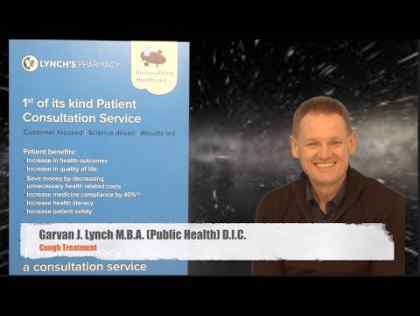Phenoxymethylpenicillin, commonly known as penicillin V, is a penicillin antibiotic that is orally active. It exerts a bactericidal action against penicillin-sensitive microorganisms during the stage of active multiplication. It acts by inhibiting the biosynthesis of cell-wall peptidoglycan.

Why have I been prescribed Calvapen?
Calvapen-Penicillin V (sometimes called phenoxymethylpenicillin) is an antibiotic used to treat bacterial infections.
How does it work?
- Penicillin V is an antibiotic also known as phenoxymethylpenicillin. It is available as tablets and oral solution and is used to treat infections caused by bacteria.
- Penicillin V works by interfering with the ability of bacteria to form cell walls. The cell walls of bacteria are vital for their survival. They keep unwanted substances from entering their cells and stop the contents of their cells from leaking out. Penicillin V impairs the bonds that hold the bacterial cell wall together. This allows holes to appear in the cell walls and kills the bacteria.
- Penicillin V is a broad-spectrum antibiotic that kills a wide variety of bacteria that cause a wide variety of commonly-occuring infections. Penicillin V may be used to treat infections of the lungs and airways, mouth and throat, skin or soft tissue, or ears. It may also be used to continue treatment for infections that have been treated initially with injections of benzylpenicillin.
- To make sure the bacteria causing an infection are susceptible to penicillin V your doctor may take a tissue sample, for example a swab from the throat or skin, or a blood sample.
- Penicillin V can also be taken on a long-term basis to prevent streptococcal infections following rheumatic fever and to prevent pneumococcal infections in people who have had their spleen removed, or who have sickle-cell disease.
When and how do I take it?
- The dose of this medicine and how long it needs to be taken for depends on the type of infection you have and if you are an adult or child. Follow the instructions given by your doctor. These will be printed on the dispensing label that your pharmacist has put on the packet of medicine.
- Penicillin V is usually taken four times a day (every six hours), but follow the instructions given by your doctor. You should try to space the doses evenly throughout the day.
- Penicillin V tablets and liquid should be taken on an empty stomach, which means either an hour before food or two hours after food.
- The tablets should be swallowed with liquid.
- Bottles of penicillin V should be shaken before measuring out a dose. Only use the measuring spoon provided with the liquid. You should not use a regular teaspoon or tablespoon to take the medicine, as this will not give an accurate dose.
- Unless your doctor tells you otherwise, it is important that you finish the prescribed course of this antibiotic medicine, even if you feel better or it seems the infection has cleared up. Stopping the course early increases the chance that the infection will come back and that the bacteria will grow resistant to the antibiotic.
Warning!
- Penicillin V liquid should be stored in a refrigerator (2°C-8°C). Any medicine remaining after the expiry date on the bottle should be disposed of, preferably by returning it to your pharmacist.
- Broad-spectrum antibiotics can sometimes cause inflammation of the bowel (colitis). For this reason, if you get diarrhoea that becomes severe or persistent or contains blood or mucus, either during or after taking this medicine, you should consult your doctor immediately.
What’s the dose?
- Phenoxymethylpenicillin is available as tablets or an oral liquid. Take this medication by mouth usually four times a day, an hour before food or on an empty stomach. Your doctor may prescribe phenoxymethylpenicillin to be taken less frequently for some conditions. The tablets should be swallowed whole with plenty of water
- Use this medication for the duration of prescription in order to get the most benefit from it.
- Remember to use it at the same time each day - unless specifically told otherwise by your doctor.
- Certain medical conditions may require different dosage instructions as directed by your doctor.
- Dosage is based on your age, gender, medical condition, response to therapy, and use of certain interacting medicines.
Could they interact with other tablets?
- It is important to tell your doctor or pharmacist what medicines you are already taking, including those bought without a prescription and herbal medicines, before you start treatment with this medicine. Similarly, check with your doctor or pharmacist before taking any new medicines while taking this one, to make sure that the combination is safe.
- In the past, women using hormonal contraception such as the pill or patch would be advised to use an extra method of contraception (eg condoms) while taking an antibiotic like this one and for seven days after finishing the course. However, this advice has now changed. You no longer need to use an extra method of contraception with the pill, patch or vaginal ring while you take a course of antibiotics. This change in advice comes because to date there is no evidence to prove that antibiotics (other than rifampicin or rifabutin) affect these contraceptives. This is the latest guidance from the Faculty of Sexual & Reproductive Healthcare.
- However, if you are taking the contraceptive pill and experience vomiting or diarrhoea as a result of taking this antibiotic, you should follow the instructions for vomiting and diarrhoea described in the leaflet provided with your pills.
- Penicillin V may decrease the removal of the medicine methotrexate from the body, which could increase the risk of its side effects. If you are taking methotrexate your doctor may want you to have extra check-ups and blood tests while you are taking a course of this antibiotic.
- Penicillin V may rarely alter the anti-blood-clotting effects of anticoagulant medicines such as warfarin. Your doctor may wish to monitor your blood clotting time (INR) more frequently while you are taking both medicines.
- Oral typhoid vaccine (Vivotif) should not be taken until at least three days after you have finished a course of this antibiotic, because the antibiotic could make this vaccine less effective.
- The antibiotic neomycin may reduce the absorption of penicillin V from the gut and so could make it less effective.
- Probenecid may increase the blood level of penicillin V, and people taking probenecid may be prescribed a lower than normal dose of this antibiotic.
What are the possible risks or side-effects?
Medicines and their possible side effects can affect individual people in different ways. The following are some of the side effects that are known to be associated with this medicine. Just because a side effect is stated here does not mean that all people using this medicine will experience that or any side effect.
- Feeling sick.
- Diarrhoea.
- Rash.
- Overgrowth of non-susceptible organisms such as the yeast Candida, which may cause infection such as thrush. Tell your doctor if you think you have developed any new infections either during or after taking this medicine.
- Allergic reaction to active ingredient. Symptoms may include itching, hives, fever (high temperature), joint pains, swelling of the tongue, throat or face, difficulty breathing or collapse. If you experience any of these symptoms stop taking this medicine and contact your doctor immediately.
- Inflammation of the large intestine (colitis). This is rare - see warning section above.
- Convulsions - rare.
- Blood disorders - rare.
The side effects listed above may not include all of the side effects reported by the medicine's manufacturer. For more information about any other possible risks associated with this medicine, please read the information provided with the medicine or consult your doctor or pharmacist.
Can I drink alcohol while taking it?
It is recommended that you do not drink any alcohol while on a course of Calvapen.
What if I’m pregnant/breastfeeding?
- Certain medicines should not be used during pregnancy or breastfeeding. However, other medicines may be safely used in pregnancy or breastfeeding providing the benefits to the mother outweigh the risks to the unborn baby. Always inform your doctor if you are pregnant or planning a pregnancy, before using any medicine.
- This medicine is not known to harmful when used during pregnancy.
- The medicine passes into breast milk in small amounts, but at normal doses this is unlikely to harm the baby. Seek further medical advice from your doctor.
If you have any more questions please ask your Pharmacist.
Remember to keep all medicines out of reach of children
Please Note: We have made every effort to ensure that the content of this information sheet is correct at time of publish, but remember that information about drugs may change. This sheet does not list all the uses and side-effects associated with this drug. For full details please see the drug information leaflet which comes with your medicine. Your doctor will assess your medical circumstances and draw your attention to any information or side-effects which may be relevant in your particular case.
References:
1. Medicines.ie website- calvapen SPC http://www.medicines.ie/medicine/3639/SPC/calvapen +Tablets/
2. Medicines.ie- calvapen PIL http://www.medicines.ie/medicine/8293/PIL/calvapen +Tablets/


